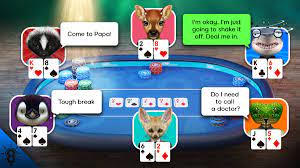Here are the top 8 poker tips on how to handle situations where you can get stuck in a calling corner.
Sometimes, you can’t seem to come out ahead on your calling Pokerace99. In fact, you often get worse than break even; often you can call almost nothing and still lose ten or fifteen times. Rather than joining the doubled-up losers’ circle, take a step back and try to find the common thread. Usually that will lead you to stronger holdings.
So what is the common thread? Here’s a list of tips on how to handle calls:
- Look at the risk vs. reward ratio
Explained in this way, you’ll understand that a calling station has practically no downside, but you as the player will have a myriad of benefits. Whenever a game is between players you always want to take the staring risk vs. reward ratio into consideration. If you are holding a marginal hand, you will have a lot of games to prove that it is playable. Calling stations will go to battle with you and you, so you’ll often have some good hands to take advantage of them. Be happy that they will battle each other. You will get better hands than they will. Overall, you’ll often be the one that is out of battle.
- Take into consideration your chip stack
The mantra of taking another card promotion far more often than any other factor including relative hand strength is the perfect recipe for bad habits. When the blinds are high, you will often take way more cards than you should, in order to make up for the cost of the blinds. I have seen it many times, good hands that you should be folding get rivered by calling stations. Realize that you may not have the greatest hand, but as long as you don’t lose, or do not get outplayed, by taking the risk you could be able to take the pot away from your opponent.
- Taking the lead
Take the lead whenever you can. Most often, the game is not between you and your opponent, but between you and another small or big blind. When you can, take the lead. It makes sense to be the first to enter the pot. If you are not first, and your opponent beats you to it, he is not going to give you any money. The smaller blind will always call his big blind to see a flop. The bigger blind will always call to keep some of his chips. If you can control your own actions, there is a lot of money to be made.
- Putting your opponent on a hand
Just as you should be reading your opponent to determine what he has, you should also be reading your opponent to determine what you need to beat him with. When you can put your opponent on a range of hands, you can place your wager. For instance, you call your opponent’s bet on the flop with an ace. If an ace comes on the flop, you can bet your ace. Your opponent cannot call uncontested.On the turn, an ace comes. You bet again. Your opponent calls.On the river, an ace comes. You now can only call if an ace has come on the flop. Your opponent, who originally called you, now neither wants your money, nor does he want to call any more bets. He has raised you. You can now call, if you want some money, or you can re-raise, which in this case would be the same thing as calling.
